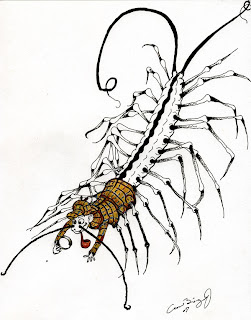 Paris Hilton revels in her legal rights.
Paris Hilton revels in her legal rights.On June 26th I had the distinct pleasure of joining some of our nation's Congresspersons as they discussed habeas corpus, and more specifically whether it applies to those people who are being held in Guantanamo Bay as enemy combatants. Before I introduce the battle, let's have a brief look at those people who we'll be talking about.
Rep. Nadler, Chairman, Subcommittee on the Constitution, Civil Rights, and Civil Liberties
Rep. Franks, Ranking Minority Member
Mr. Katsas, Department of Justice
Lt. Com. Swift, Office of Military Commissions
Mr. Taft, Attorney
Mr. Berenson, Former Associate Council to the President
Mr. Hafetz, New York University School of Law
There were some other minor characters like Rep. Ellison and Rep. Jordan, but in the gloss these guys are the ones really throwing around the language. The whole thing starts with Mr. Nadler scolding some Code Pink ladies who showed up. He reminds them that this is a serious debate for serious people and that they shouldn't yell at the Congresspeople present. This because only a couple of days earlier Code Pink actually did have some screamers and they had to be booted out of a hearing by local law enforcement. He then reads an incendiary opening statement in which he whips out Federalist 81 and sprays it all over the composed face of Mr. Franks. He chats about tyrannical power and how there needs to be some sort of oversight in Guantanamo. His main beef? President Bush and the office of the Executive gets to chuck people into our prison in Cuba without telling anyone who's down there, what for, or for how long. This could result in a "disappearing person" incident in which a person is abducted by us and is never seen again by human eyes, most specifically those of his family. These situations tend to be unsightly (pun), and cause some turmoil. He then yields to Mr. Franks.
Mr. Franks, cool and composed, gossips to the room about how the Constitution doesn't guarantee habeas to anyone (true), much less foreigners. He says that people in Guantanamo are "bloodthirsty killers," and that the "liberal intelligentsia" has some really "insane notions." Mr. Nadler appears undisturbed, but ready to strike. It's time for the five witnesses. There are five minutes from each person, but I'll save you the trouble since the question was pretty simple.
Do you think that we should allow persons in Guantanamo Bay to petition for habeas corpus?
Katsas: no-we already give them too many protections
Swift: yes-remember that one time that we signed at the Geneva Convention?
Taft: sure-we could use a dose of credibility and we're a little lacking
Berenson: no-these people are crazy
Hafetz: yes-Berenson is crazy
Pretty intense, and an even divide. Mr. Nadler decides to take on the biggest fish first. He swivels to Berenson and lines up for the kill. He asks Berenson a demure question-"What provision is in the law right now that requires us to make sure we have the correct prisoner and a reasonable cause to hold them without trial?" "A Combatant Status Review Tribunal," he responds. "We aren't legally obligated to do that, though, are we Mr. Berenson?" "Well, no, but it's the Administration's policy..." Mr. Nadler then gives a very scandalous rant about the policies of the current Administration, makes CSRTs sound like a bunch of monkeys jerking off around a fire, and then asks again what the LEGAL obligation is to prove that we are torturing the correct person in Cuba after ripping them away from their homeland. Mr. Berenson goes quietly to sleep and dreams of a place where angry people don't yell at him.
In defense of Berenson, Mr. Franks lets loose that Jihadists are Nazis and that only bounders and scoundrels talk about legalities when fighting terrorists. He lays into Mr. Taft and comes up with a foul ball. Mr. Taft, you see, is no ordinary man. He's actually William H. Taft IV of the Taft Presidency seed, and his house will not fall to the likes of a mere Arizona Ranking Member. He specifically addresses that he doesn't think we have to give Guantanamo prisoners habeas corpus, but that the court already knows how to handle these proceedings and the cases will be straight-forward since most of the people held there (of the 375) are either leaving soon or openly admit that they will attack us if set free. Mr. Taft thinks we're only talking about a handful of cases that call for due process and those should be addressed as good global politics. Mr. Franks is stunned into silence by the eloquent solution this man has put forward, and Mr. Taft is never called upon again by either party.
Mr. Nadler then calls on Swift to patronize to Mr. Franks, and Mr. Franks calls upon Mr. Berenson to condescend to Mr. Nadler. After about four hours of bickering, they end the hearing with nothing decided, though Mr. Nadler clearly has the more powerful tongue and Mr. Franks appears full of gas.
But what's the real deal? Actually Mr. Taft (IV!) brilliantly put forward the exact problem and solution. At a time like this when we have no other legal recourse, of course we have to give people the ability to contest whether or not they actually are enemy combatants. That most of them freely say yes they are makes the process that much more simple. Unfortunately, I know exactly why Mr. Franks and the other Republicans really really resent this solution. Over the course of the hearing it became obvious that Mr. Franks really does believe that Liberals are willing to do anything to help terrorists, and that they do so intentionally. Even though the Supreme Court has a conservative majority right now, most appellate courts are still liberal-leaning. The thought of trusting the sensitive cases of terrorists to a liberal court that will release them on a technicality while knowing full well that they are our enemies seems to them like horrific policy and bad public service. At best it hands liberal judges cases that they can use to say that they are tough on crime, and at worst it leaves Republicans in a position where they have to justify to the American people why a known terrorist has just been set free.
But then again, the Supreme Court ruled in favor of extending habeas corpus to Guantanamo detainees before, and even Republicans don't entirely trust the President to have the only say in who goes to jail and for how long. I mean c'mon. What if we get a Democrat President?





